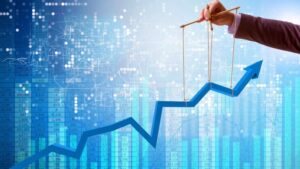
Exports of goods from Ukraine in 2023 fell by 18.5% year-on-year – from $44.2 billion to $36 billion, while imports increased by 14.4% – from $55.5 billion to $63.5 billion, the State Customs Service said on Friday.
As a result, according to its data, Ukraine’s foreign trade turnover for 2023 decreased by only 0.3% to $99.4 billion.
It is specified that taxable imports amounted to $52.6 billion, or 83% of the total volume of imported goods. It is noted that the tax burden per 1 kg of taxable imports in 2023 increased by 38% to $0.49/kg.
According to the released data, the most imported goods to Ukraine were China – in the amount of $10.4 billion, Poland – $6.6 billion and Germany – $4.9 billion, while the most exported were Poland – $4.7 billion, Romania – $3.7 billion, as well as China – $2.4 billion.
In the total volume of imported goods in 2023, 65% were machinery, equipment and transport – $19.8 billion (during customs clearance of such goods, UAH 141.7 billion or 31% of customs payments were paid to the budget), chemical products – $11 billion (UAH 74.8 billion or 16% of customs payments were paid to the budget) and fuel and energy products – $10.3 billion (UAH 103.4 billion or 23% of customs payments).
The top 3 exports from Ukraine in 2023 were food products – $21.8 billion, metals and metal products – $3.9 billion, as well as machinery, equipment and transport – $2.9 billion
The State Customs Service specified that 559.2 million UAH was paid to the budget during customs clearance of exports of goods for which the export duty was established.
For more details on the situation in the Ukrainian and global economy, see the video on the YouTube channel “Club of Experts” at the link:
https://www.youtube.com/watch?v=byJnfmie7bM
Subscribe to the channel here: https://www.youtube.com/@ExpertsClub

The negative balance of Ukraine’s foreign trade in goods in January-November 2023 increased 2.8 times compared to the same period of 2022 – to $24.351 billion from $8.570 billion, the State Statistics Service (Gosstat) said on Monday.
According to its data, exports of goods from the country during the period decreased by 18.9% compared to January-November 2022 – to $32.978 billion, while imports increased by 16.5% – to $57.329 billion.
The State Statistics Committee specified that in November-2023 compared to October-2023, seasonally adjusted exports increased by 3.1% to $2.583 billion, while imports decreased by 9.5% to $4.749 billion.
The seasonally adjusted foreign trade balance in November-2023, as in the previous month, was negative at $2.166 billion compared to $2.741 billion before.
The export-import coverage ratio in January-November 2023 was 0.58 (0.83 in January-November 2022).
State Statistics specified that foreign trade operations were conducted with partners from 228 countries.
For more details on the situation in the Ukrainian and global economy, see the video on the YouTube channel “Club of Experts” at the link:
https://www.youtube.com/watch?v=byJnfmie7bM
Subscribe to the channel here: https://www.youtube.com/@ExpertsClub

In a new episode of the Experts Club YouTube channel, Maksim Urakin, PhD in Economics, presented an analysis of macroeconomic trends in Ukraine and the world based on official data from the State Statistics Service of Ukraine, the NBU, the UN, the IMF, and the World Bank.
Macroeconomic Indicators of Ukraine
Maksim Urakin cited data from Ella Libanova, Director of the Institute for Demography and Social Studies, who estimates that about 50% of citizens will return after the war.
“Demographics is an important factor for economic recovery, but the threat of depopulation and labor shortages cannot be ignored. In the medium term, the decline in the demographic growth potential in Ukraine can only be offset by migration,” Urakin emphasized.
The expert noted that the main risks to the economy remain the duration of the war and the instability of international aid.
“In the third quarter of 2023, Ukraine’s GDP growth slowed to 8.2%. The negative balance of foreign trade increased 3.2 times, which is an alarming signal. The public debt has slightly decreased compared to August figures, but in 2024 it may exceed the country’s GDP for the first time, which poses significant risks to economic stability,” the economist said.
Prospects for the Global Economy
The founder of Experts Club also analyzed the global economy, noting a slowdown in growth in 2024 to 2.2%.
“One of the key reasons for the slowdown in global economic growth is the decline in GDP in developed countries. We are witnessing the lowest GDP growth in developed countries since the 1980s, with the exception of the global financial crisis and the COVID-19 pandemic. The unprecedented cycle of interest rate hikes by major central banks in recent years has also played a significant role in slowing growth. These rate hikes are driven by the need to control inflation, but at the same time, they limit economic activity,” the expert explains.
According to the expert, the current macroeconomic situation in Ukraine and the world requires further analysis. For Ukraine, the main challenges in the coming years will be the need to restore Ukraine after the war and manage the public debt.
For more information on the situation in the Ukrainian and global economy, please see the video on the YouTube channel “Club of Experts” at the link: https://www.youtube.com/watch?v=byJnfmie7bM
You can subscribe to the channel here: https://www.youtube.com/@ExpertsClub
ECONOMY, economy review, EXPERTS CLUB, MACROECONOMICS, URAKIN, world economy

Ukraine’s economy is demonstrating resilience this year, with GDP growth projected to reach 4.7% after falling by 29.1% last year, Finance Minister Sergii Marchenko said at a meeting with the G7 financial bloc on the sidelines of the IMF and World Bank meetings in Marrakech on Thursday in Marrakech.
“Inflation is falling faster than expected: to 7.1% in September 2023 from 26.6% in 2022. Domestic borrowings have exceeded the plan and have already reached more than $11 billion since the beginning of the year. Thanks to our partners, international financial support is rhythmic and predictable, totaling $33.8 billion in 2023,” Marchenko was quoted as saying in a press release from the Ministry of Finance on Thursday evening.
The discussion, which was attended by finance ministers and central bank governors of the G7 member states, the IMF, the World Bank and the European Commission, focused on Ukraine’s financial system, the state of implementation of structural reforms and cooperation with international financial organizations and the EU in the context of meeting budgetary needs in 2024.
The Minister emphasized that the Government of Ukraine is committed to implementing the reforms identified in cooperation with international partners.
In their turn, finance ministers of a number of countries and leaders of the EU, IMF and World Bank assured to maintain their support for Ukraine as long as necessary, the release said.
Although the joint efforts of the Ukrainian government and international partners have ensured the full provision of all public services to the population for nine months in a row, avoiding monetary financing, Marchenko emphasized that the uncertainty provoked by the war remains.
According to him, the 2024 budget envisages the accumulation of maximum resources for the security and defense sector, with expenditures at the level of the current year, as well as the creation of conditions for the development of the domestic defense industry. At the same time, it provides for an increase in spending on social protection and humanitarian aid, as supporting Ukrainians is an important priority of the Ukrainian government, and therefore the state budget deficit is projected at $42.9 billion.
“I am very grateful to our partners for their assurances of continued support for the next year. We already have agreements with such countries as Japan and the UK. Also, Ukraine and the EU are actively working on the creation of the Ukraine Facility for 2024-2027 with a total volume of EUR 50 billion,” the Minister of Finance said.
He added that Ukraine’s fulfillment of the conditions set in cooperation with the IMF will allow it to receive $5.4 billion under the EFF program next year.
“However, even with all these commitments, the deficit remains high,” Marchenko added and expressed hope that donors would help Ukraine cover social and humanitarian spending in full.

Spain’s economy grew by 0.5% in the second quarter of 2023 compared to the previous quarter, according to revised data from the INE statistics agency.
Earlier, an increase of 0.4% was announced. At the same time, analysts did not expect a revision, Trading Economics reports.
Business investment increased by 1.9%, including 3.6% in the construction sector. Consumer spending increased by 0.9%, government spending by 1.6%.
Meanwhile, exports declined by 3.1%, while imports fell by 2%.
Data for the first quarter were also improved: GDP growth was 0.6%, not 0.5%.
The Spanish economy grew by 2.2% in April-June compared to the same period last year, not 1.8% as previously reported. In the first quarter, the growth was 4.2%.
The Bank of Spain predicts a further slowdown in the country’s economic growth in the third quarter to 0.3%. By the end of 2023, GDP is expected to increase by 2.3%.
The Experts Club research project and Maksym Urakin have recently released an analytical video on the economies of Ukraine and the world
You can subscribe to the Experts Club YouTube channel at https://www.youtube.com/@ExpertsClub


On October 12, 2023, the ninth Kyiv International Economic Forum, an annual event that brings together representatives of the Ukrainian government, business, and society for open dialogue, exchange of experience, creation of a space of trust, and effective strategies for economic development, will take place.
For the second time, the forum will be held in Kyiv under martial law. The theme of this year’s KIEF is “People. Business. Economy. The Price of Freedom”.
Key topics of KIEF 2023:
and others.
“In times of the most difficult historical test for the country, its economy, business, society, and for each of us personally, we must unite, combine our efforts and experience to make difficult, bold, and pragmatic decisions. The goal is to become co-authors not only of the Victory, but also of the future of an independent, innovative, and prosperous Ukraine that our descendants will be proud of. It all depends on us,” commented Vasyl Khmelnytsky, initiator of the forum and founder of UFuture holding.
They will share their experience and vision:
“Last year, we discussed the topic of restoring the Ukrainian economy after the victory. But life turned out to be much more complicated and the challenges much more serious. KIEF 2023 is dedicated to finding solutions to the most pressing ones that need to be addressed here and now. The high price of Ukraine’s freedom and independence must be justified. This is a task for each of us,” said Yuriy Pyvovarov, CEO of the Kyiv International Economic Forum.
“Despite the war, Ukrainian business continues to operate, supporting the army and humanitarian initiatives. This year’s KIEF is an opportunity to discuss the problems, solutions and tools for integrating veterans into civilian life. It is an opportunity to share experience of doing business during the war and join forces on the way to victory. An opportunity to record our achievements and plan the next steps. This is a crucial event where Superhumans Center has a platform for a joint discussion on how to build a new social contract between people returning from war and business,” said Olga Rudneva, CEO of Superhumans Center.
As part of the event, each participant will be able to contribute to the support of the Superhumans Center for Rehabilitation, Prosthetics and Reconstructive Surgery. The proceeds from the registration fees will be used to rehabilitate Ukrainians affected by the war.
On the day of the event, the KIEF YouTube channel will broadcast the event via the link.
The innovative partner of the event and the exclusive partner of the online broadcast is Mastercard.
General media partner: ICTV.
Title media partner: 1+1 Media.
Title partners: UFuture, Mastercard, Nova Poshta, AJAX, Biopharma.
Partners: Kyivstar, Aequo, Dynasty Investment Group, Interpipe, Epicenter, Superhumans Center, All-Ukrainian Mental Health Program “How are you?”, NGO “Bezbariernist”.
We believe that our victory, our recovery and economic development are our choice and our business.
Join the change on October 12.
For more information about the event and conditions of participation, please follow the link.
Kyiv International Economic Forum 2023
People. Business. Economy
The price of freedom